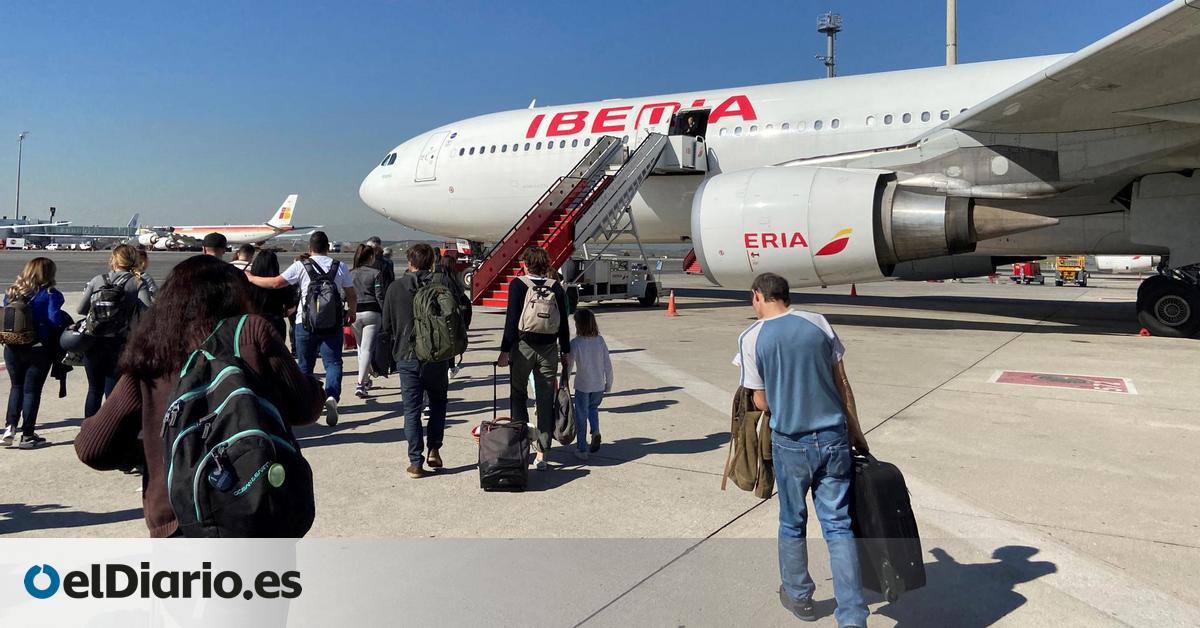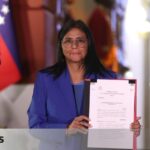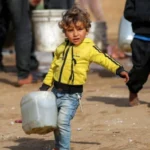
The Spanish airline Iberia announced this Saturday the cancellation of its commercial flights to Venezuela and will evaluate the situation in that country to decide when it will resume operations. The first of the trips was scheduled for Monday.
The number of Iberia commercial flights to the Venezuelan country is five weekly. Friday and Sunday are the only days that there were no scheduled flights to that country, according to the sources consulted.
The company has adopted this decision in line with what other airlines are doing, according to Iberia sources informing EFE. Among them is the Portuguese TAP, which has decided to cancel a flight scheduled for this Saturday and another for this coming Tuesday to Venezuela. The Brazilian Gol also did the same with its flights to Caracas scheduled for this weekend.
The cancellation of these flights comes after the notice issued on Friday by the US Federal Aviation Administration (FAA), in which it urged commercial flights to “exercise caution” when flying over Venezuela and the southern Caribbean in the face of what it considers “a potentially dangerous situation in the region.”
In its communication, the FAA warned of a “potentially dangerous situation in the Maiquetía flight information region,” which corresponds to the airspace controlled by Venezuela, which also includes part of the southern and eastern Caribbean. “Operators are advised to exercise extreme caution when operating in the Maiquetía flight information region at all altitudes due to the deteriorating security situation and increased military activity in or around Venezuela,” the text added.
The United States has maintained a broad military deployment in the southern Caribbean since last summer
This notice to airlines with flights to Venezuela coincides with the large US military deployment in the area since last summer to pressure the Venezuelan Government of Nicolás Maduro and tighten the siege on it, with more than 15,000 soldiers in the area, an aircraft carrier, frigates, destroyers.
Thus, Washington has decided to designate as a terrorist group the alleged Cartel of the Suns, which, according to the US and without providing a single piece of evidence, is commanded by the president of Venezuela. This movement, announced by the US Secretary of State, Marco Rubio, represents a turn of the screw to target the president of Venezuela.
Likewise, last week the aircraft carrier USS Gerald Ford arrived in the southern Caribbean, joining the military deployment in what the Pentagon has called operation “Southern Lance.”
Within this operation, whose purpose, according to the Trump Administration, is to combat drug trafficking, the United States has destroyed nearly twenty boats supposedly loaded with drugs and killed at least 83 people who crewed them.
A secret report from the Department of Justice has approved the attacks on alleged drug boats as legal, supported by the idea that the United States is legally in a state of armed conflict with the drug cartels. The Administration has insisted that Trump has the authority to legally order extrajudicial killings under the laws of war, but has provided few details about its legal analysis to support that conclusion.
The attacks have occurred in territories such as Trinidad and Tobago. In this country, the relatives of some victims of these extrajudicial executions denounce the lack of due process and collaboration with the US authorities, who do not open any investigation.
For example, at the end of last October six men from the fishing town of Las Cuevas, in the north of Trinidad, were murdered. The uncle of one of the deceased lamented that Trump only attacked the region “because he wants the countries’ gas and oil. He goes after the wealth of the populations and kills the children of the poor.” Thus, since last summer, Caribbean fishermen have been afraid of becoming collateral victims of this conflict while they are working at sea.
Source: www.eldiario.es

